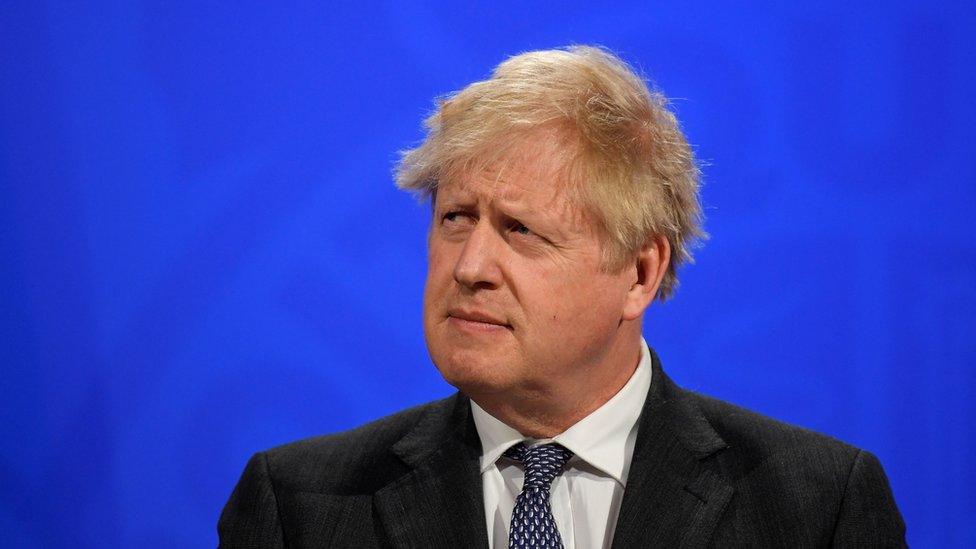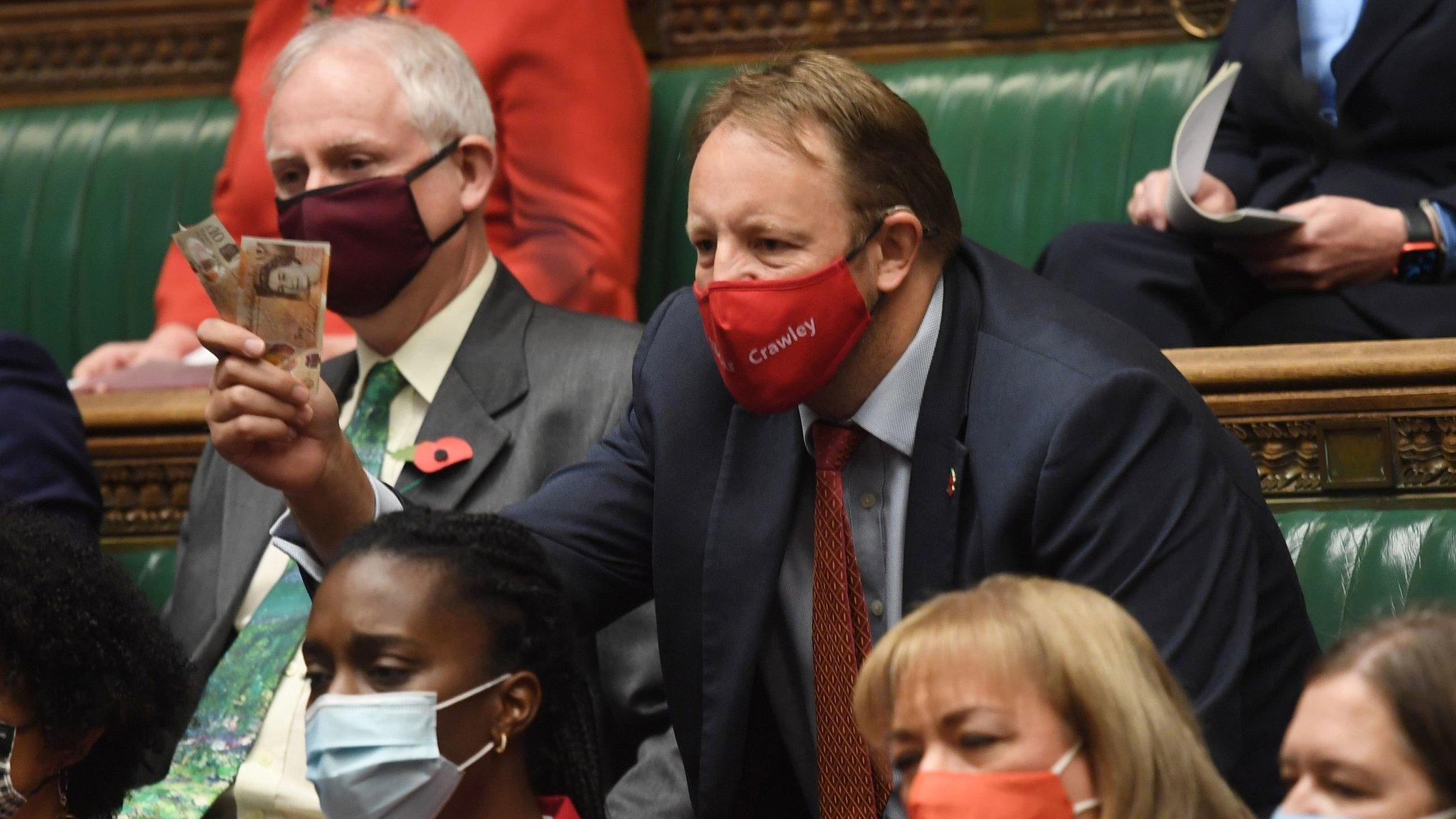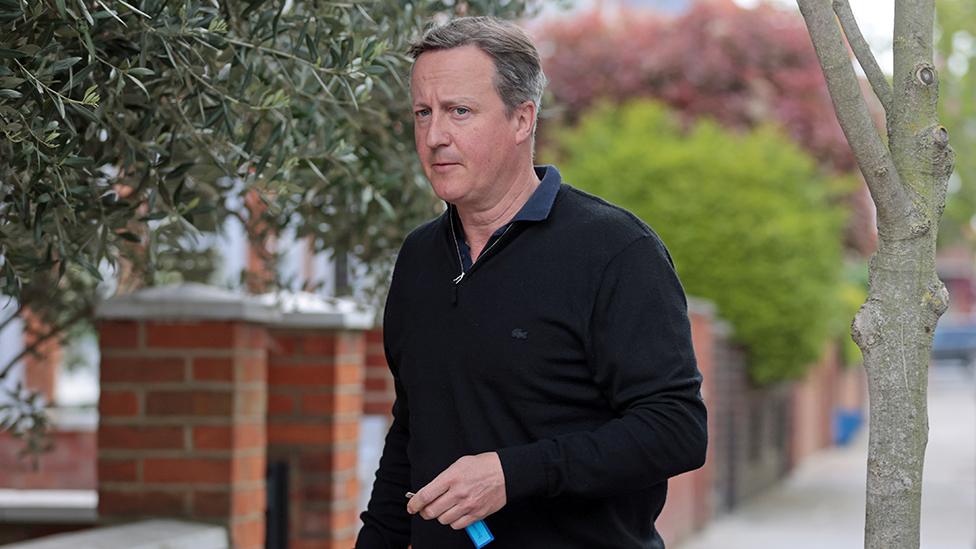Johnson and Dyson: Where is the line on lobbying government?
- Published

Lobbying can be absolutely legitimate. It's part of how Westminster lives and breathes. Who would object to a small charity approaching its local MP to ask for help?
Who would complain about the pub industry pushing the government for answers about when they can serve pints again inside after the year we've all had?
Who would begrudge health unions trying to persuade ministers that their staff members deserve a pay rise?
Who wouldn't see the logic of big business groups trying to make their arguments to decision makers at the top to help them thrive and prosper, when decisions made in SW1 affect millions of us, and billions of pounds?
There are thousands of different circumstances in which having those discussions is perfectly valid.
What about however, when the most powerful politician in the country sends a direct message to an influential businessman promising: "I will fix it tomo"?
What about when the request from the company in question was about the tax rules? What about when the exchange between the two ends with a guarantee from the prime minister, long before any official announcement: "You can take it that we are backing you to do what you need"?
In this case, where Boris Johnson assured Sir James Dyson his employees would not have to pay extra tax if they came to the UK to make ventilators during the pandemic, there is an obvious logic to the request made to government.
Sir James was trying to respond to the urgent call for help at the start of the pandemic, when there was deep and genuine fear that the NHS simply wouldn't have the equipment to look after many thousands of patients at risk.
But Dyson also, understandably perhaps, wanted to be clear about protecting its business from any extra costs or liabilities. (In the end remember, they lost money from the project.) And the prime minister was heavily involved in efforts to get hold of ventilators and in touch with many businesses as the pandemic took hold.
Both Number 10 and Dyson stress the terrible urgency of the situation last year, rejecting the notion that the conversations were in any way inappropriate.
You can read both the government and Sir James' responses to our story here.
But the rules that govern ministers' behaviour aren't just about what is being discussed, they are about how the conversations are had.
The principles are clear - contacts are allowed as long as there aren't conflict of interests, and everything is transparent and out in the open.
Dyson had made an official approach to the Treasury on this issue. But it is not clear at this stage whether the prime minister did or didn't tell officials about these specific exchanges of texts.
The practice of the principles that are meant to govern what is permitted has proved troublesome recently, provoking one of the all too regular concerns about lobbying of government.
Downing Street let it be known last week that the prime minister was shocked about some of the revelations that emerged, particularly about civil servants' behaviour as the lobbying row got deeper and deeper.
But in the next few hours, some of his critics are likely to claim to be shocked by his.
- Published5 November 2021

- Published9 August 2021

- Published12 April 2021
